Nursing 5 Assignment: Health Issues and Interventions in Older Adults
VerifiedAdded on 2022/08/23
|5
|803
|18
Homework Assignment
AI Summary
This nursing assignment addresses various health aspects of older adults, including sensory health (presbycusis and vision changes), nutritional needs (calorie intake, protein deficiency, and age-related gastrointestinal changes), and continence issues (incontinence strategies, bladder changes, and UTIs). It also covers musculoskeletal health (fall prevention, muscle mass, and Parkinson's disease), cardiovascular and respiratory health (pulse rate, oxygen saturation, and chest infections), and skin, sleep, and medication considerations (skin fragility, sleep patterns, and drug metabolism). The assignment references key research articles and provides insights into age-related health challenges and appropriate interventions. It emphasizes the importance of tailored care for older adults, considering their unique physiological changes and health risks. This assignment is a valuable resource for nursing students studying geriatric care.
1 out of 5
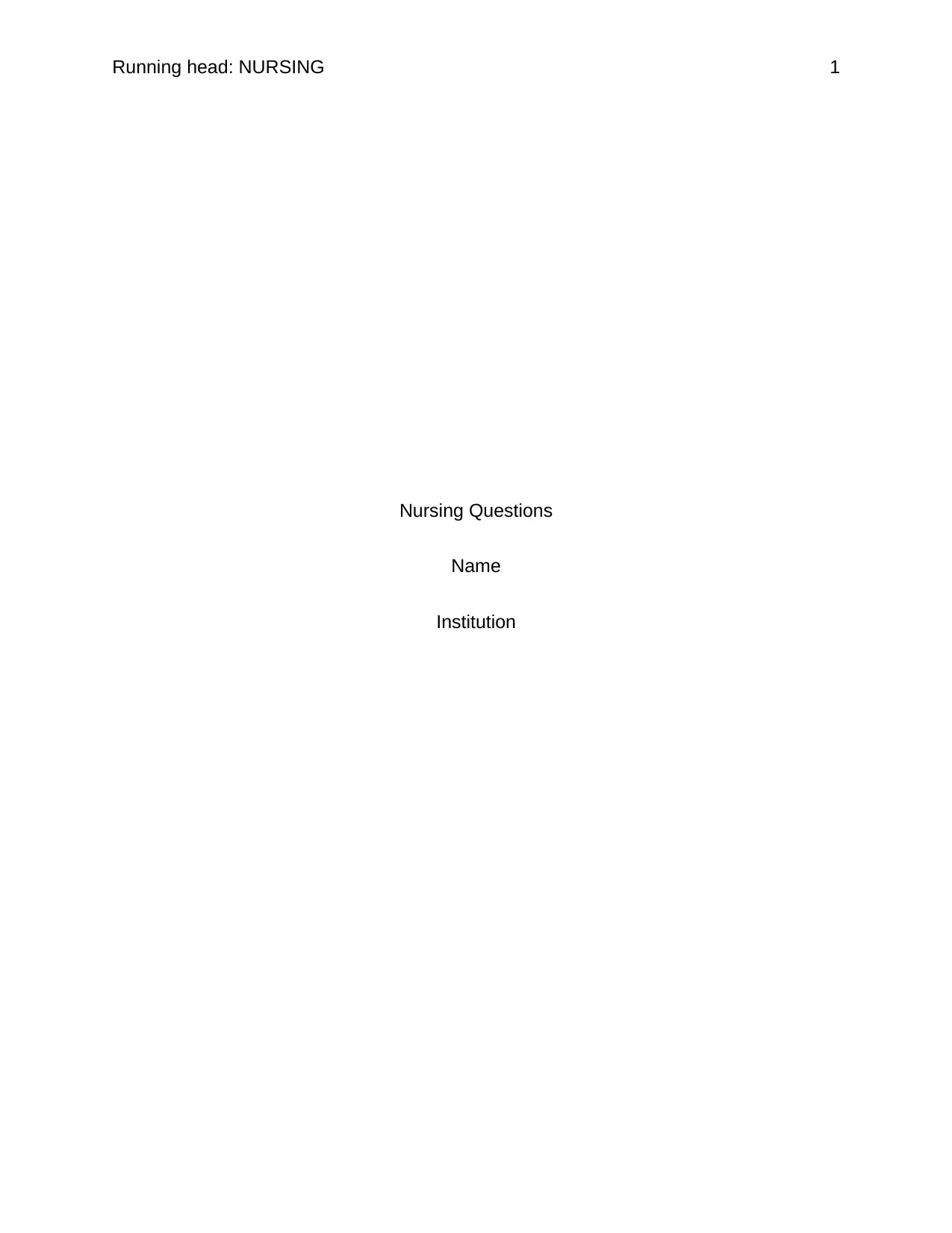
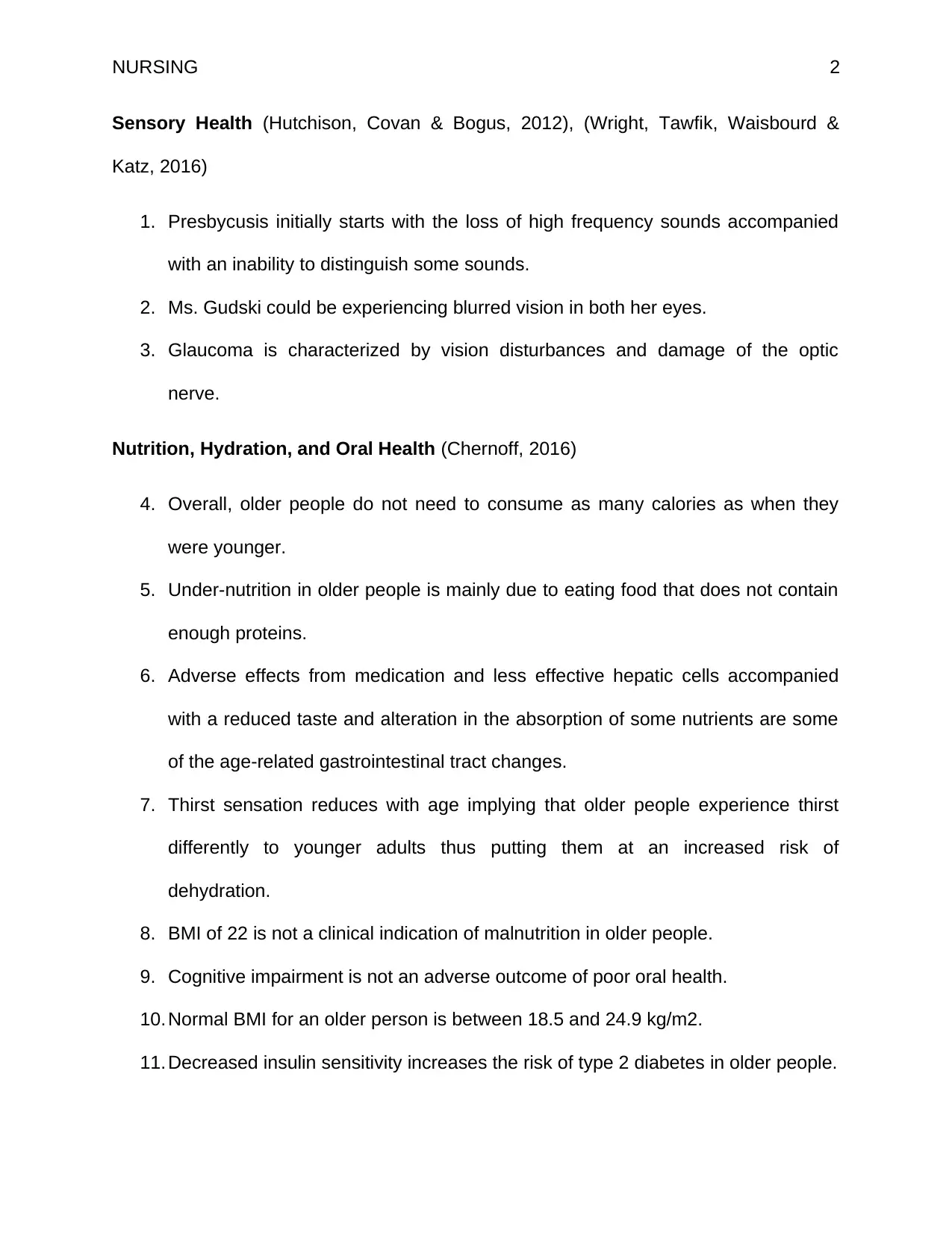
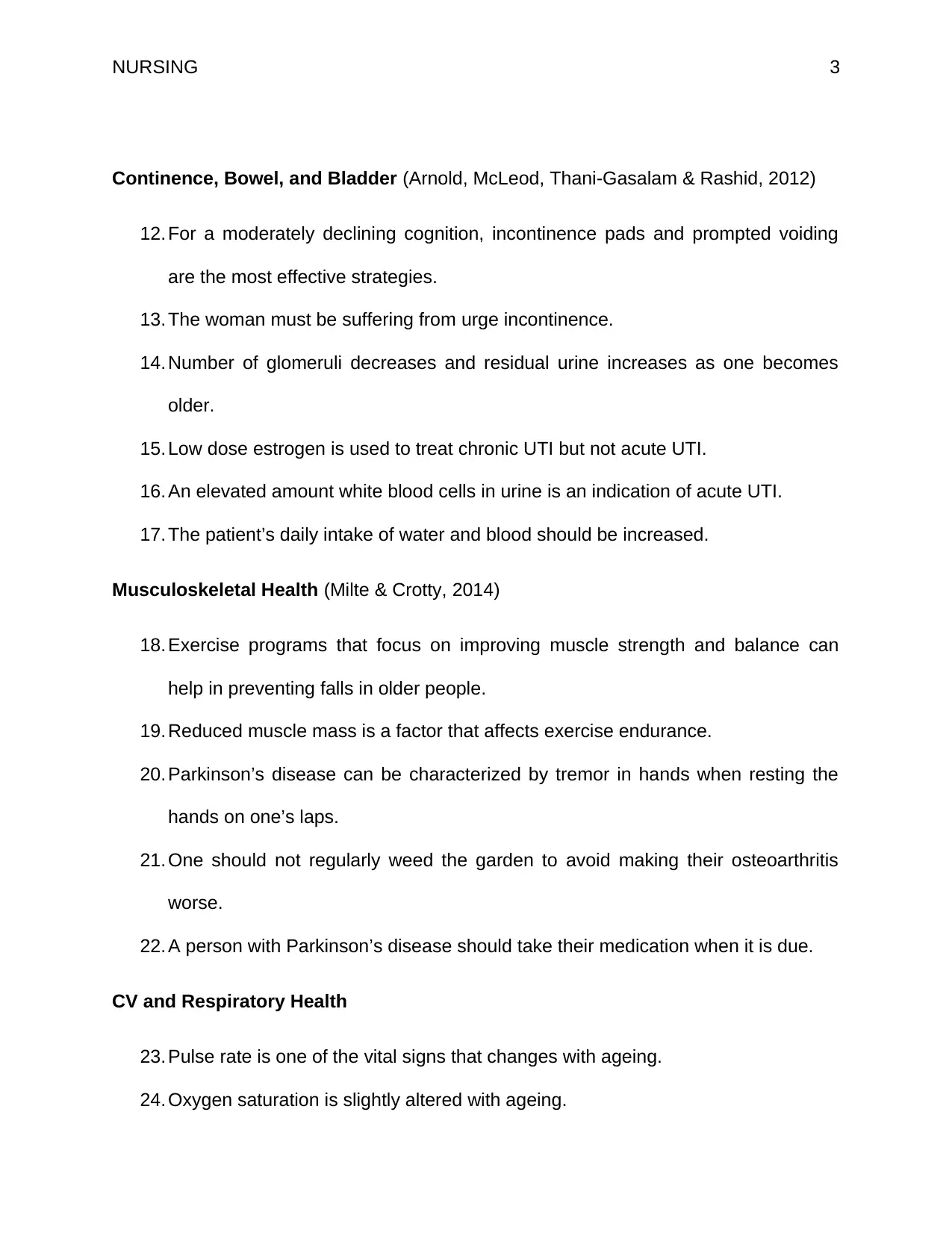

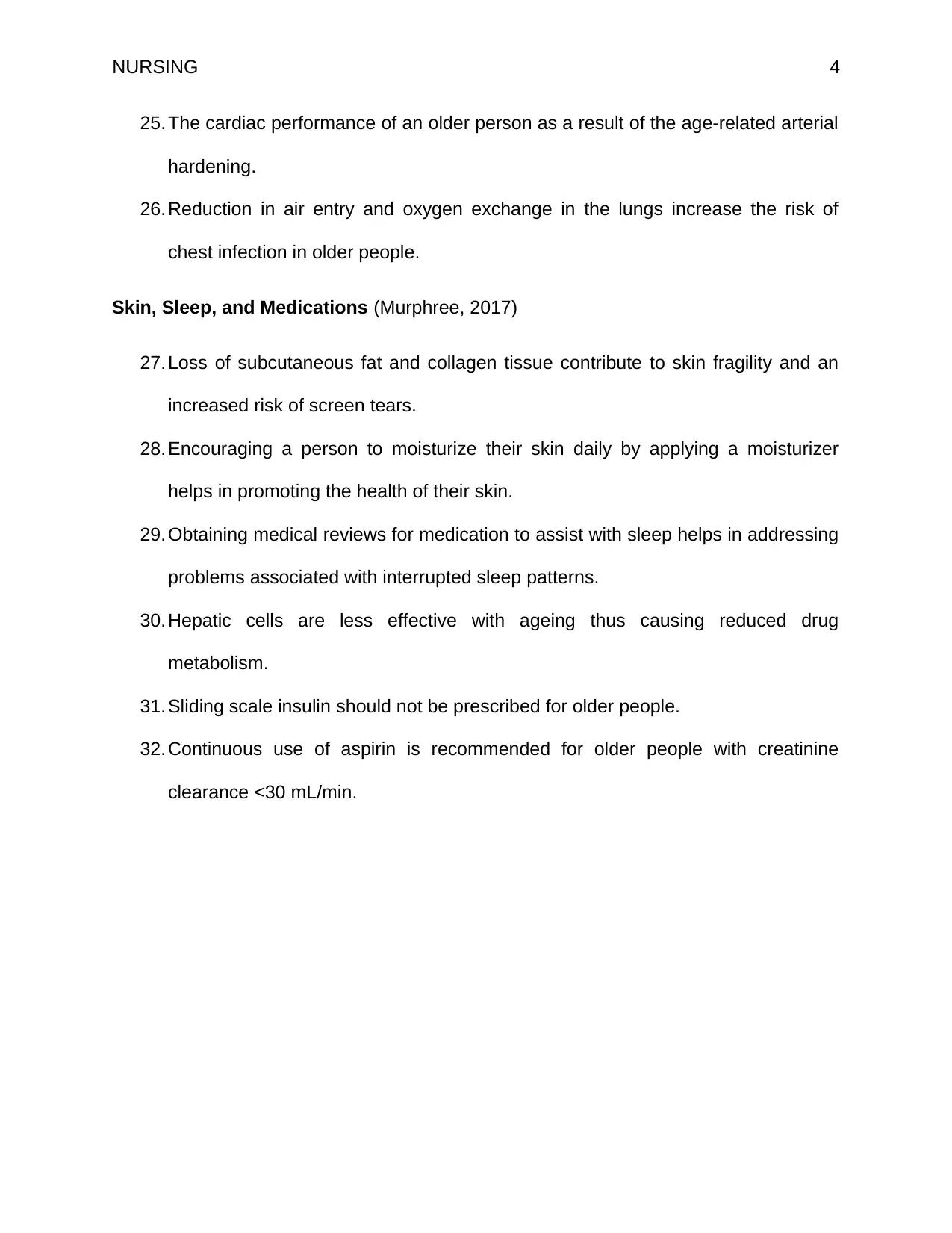
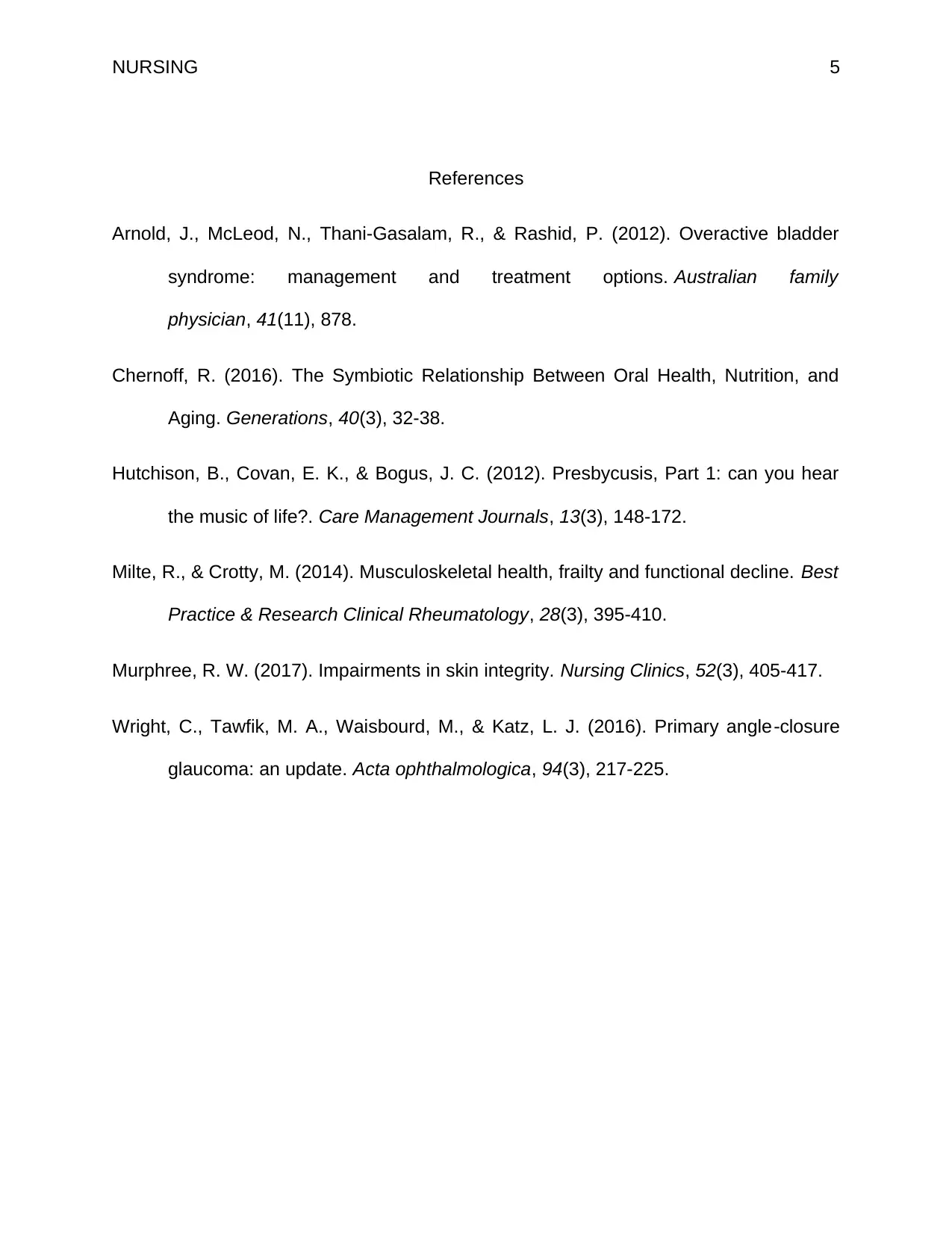






![[object Object]](/_next/static/media/star-bottom.7253800d.svg)